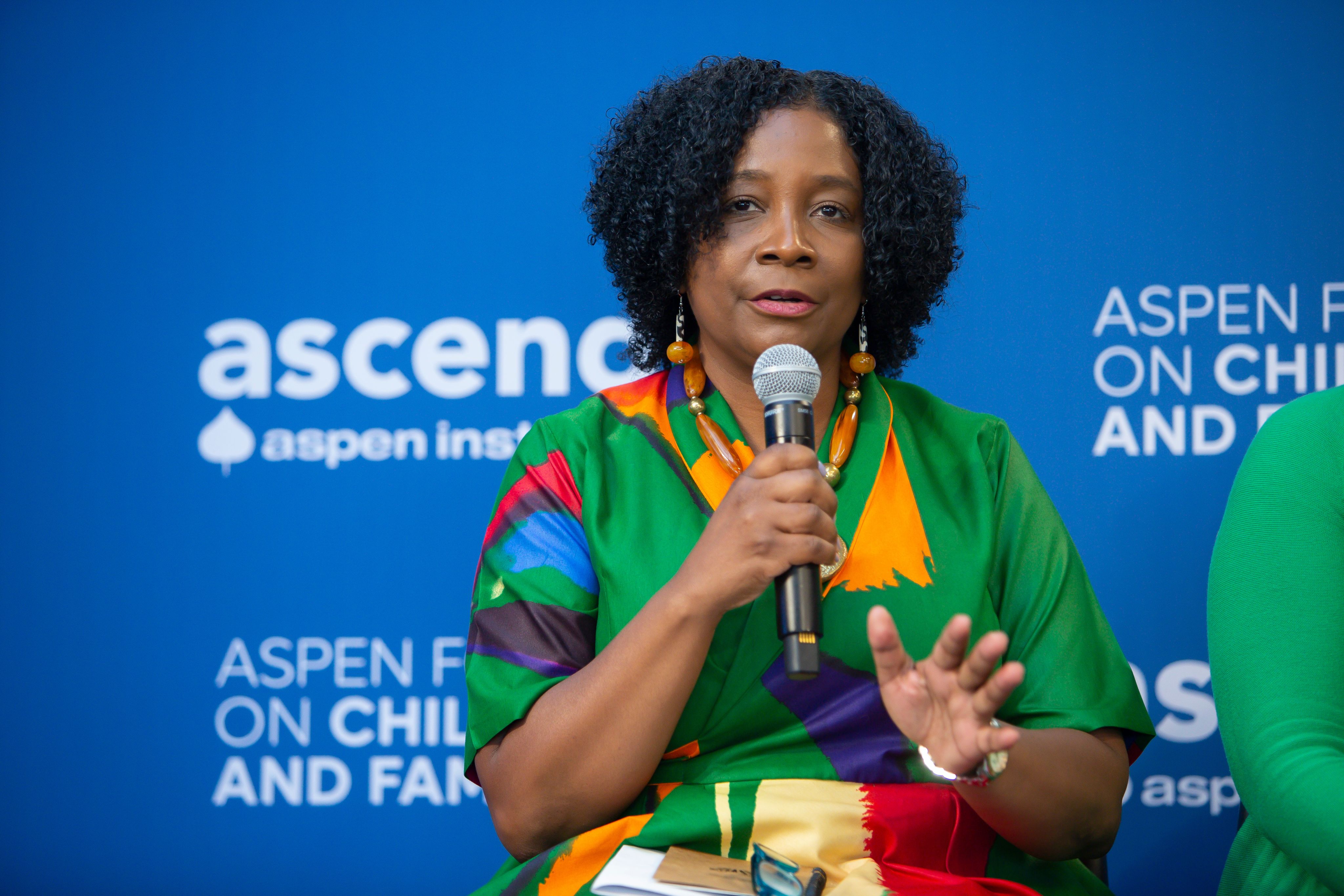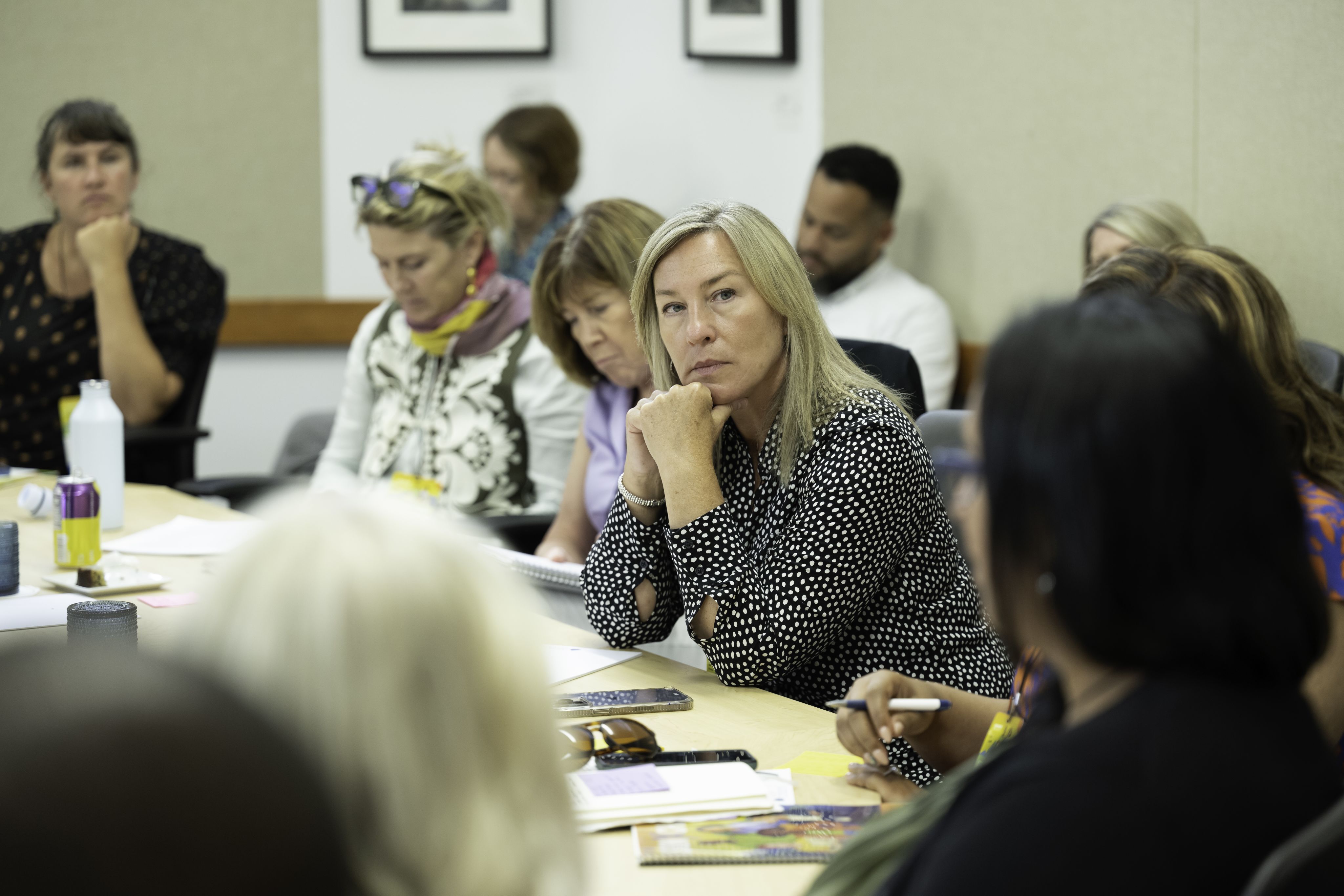Seismic Shift
How Ascend Fellows are reshaping the child welfare system

Ascend Fellows are challenging inequitable systems across the country. From education to maternal health, these systems are ready for new ideas so they can better serve children and families.
That’s especially true for the child welfare system, which currently involves more than 50 percent of all Black children at some point before they turn 18. In 2023, Ascend — in collaboration with Fellows, Network partners, and other key stakeholders — published Reimagining Child Welfare. The report outlines four recommendations for practitioners and policymakers to prevent those historically most at risk from coming into contact with the child welfare system in an undesirable way, and ensure better outcomes for those who do.
The report is just one part of how the child welfare system is being reshaped by Ascenders at the federal and state levels.
Federal Level

2021 Ascend Fellow Aysha E. Schomburg is the associate commissioner of the United States Children’s Bureau within the Administration for Children and Families, which envisions “a loving approach to helping children obtain what they need to live with dignity.” One of the Children’s Bureau’s priority goals is preventing children from coming into foster care. To do that, Aysha is encouraging states to rethink their definitions of neglect.
According to the National Child Abuse and Neglect Data System, neglect is the primary cause of child maltreatment cases, accounting for 76 percent of all cases. The problem is that in many states, the definition of neglect is often conflated with indicators of poverty. For example in Michigan, the definition of neglect included “the failure to provide adequate food, clothing, shelter, or medical care,” without acknowledging that inability to pay for these items may be a factor.
Aysha and the Children’s Bureau are raising awareness to make sure that the difference between neglect and poverty is clear in state policies, and states are starting to listen. In California, economic disadvantages are no longer considered part of general neglect. States like Iowa and Kentucky now have clauses that specify that neglect exists in cases where caregivers have failed to provide basic needs for their children “while financially able to do so.”
The hope is that these policies result in children being safely supported in their communities rather than separated from their families. “We have approved Family First prevention plans in 44 jurisdictions, and we have established our plan to promulgate a regulation that would advance equity and provide much needed support for kinship caregivers,” Aysha wrote in March 2023. “There is still a lot of work to do, but I am encouraged about how far we’ve come.”
State Level
New Jersey's child welfare reinvention

Under the leadership of Ascend Fellow Christine Norbut Beyer, commissioner of the New Jersey Department of Children and Families, the Garden State is reinventing its child welfare system.
“The goal that I have is to eliminate the need for non-kin foster care,” Christine said at the 2023 Aspen Forum on Children and Families (AFCF). “That's the only way, at least through our systems, we're going to be able to keep families whole and allow children to grow up with their families.”
Since Christine became commissioner in 2018, New Jersey has continued to dramatically reduce the number of children in foster care. From 2018 to 2022, the state saw a 55 percent reduction in entries into foster care.
“The goal that I have is to eliminate the need for non-kin foster care.”
Part of that success is owed to a renewed investment in preventative services that help children and families avoid adverse experiences that often result in involvement in the child welfare system. Approximately half of the growth in the Governor's Fiscal Year 2023 budget was allocated to prevention services, which Christine sees as an exciting next step. “Because it’s primary prevention, it's eliminating that a family may end up being a call to the hotline,” Christine said.
Christine’s success has also been buoyed by her partnership with Ascend Fellow Atiya Weiss, executive director of the Burke Foundation. Christine and Atiya have forged a strong partnership, resulting in breakthroughs like policy-shaping research into adverse childhood experiences and the Powerful Families, Powerful Communities initiative, a preventative program that is creating new accountability structures and new ways of delivering services in partnership with families, community members, and child welfare innovation partners.
“This has been one of the most empowering partnerships and a true model for government- private philanthropy partnership,” Christine said when she was named a 2023 Community Champion by the Burke Foundation. “I’m grateful for all that we’ve done together to help New Jersey residents become and remain safe, healthy, and connected.”
